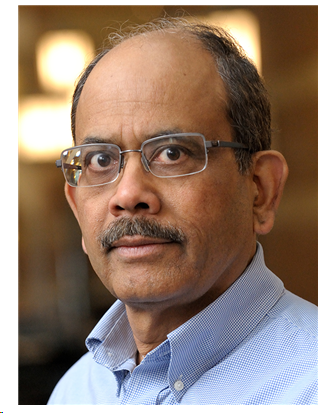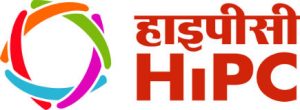5th Workshop on Education for High Performance Computing (EduHiPC 2023)
Workshop Date: December 18, 2023
EduHiPC Faculty Training Workshop: Virtual 20 November – 6 December; In-person on 17 December
EduHiPC 2023 Technical Program
8.30 AM: Welcome and Introduction (Sushil Prasad, Ashish Kuvelkar and Sharad Sinha)
8:35 AM Keynote 1: Prof. Laxmikant (Sanjay) Kale, University of Illinois at Urbana-Champaign (Introduction by Ashish Kuvelkar)
Talk Title: Interdisciplinary Research and its Utility in Teaching Parallel Programming
Abstract: Parallel programming is a discipline within computer science, but its utility is felt in physical sciences and engineering. Simulations running on parallel supercomputers and clusters are used for deepening humanity’s understanding of the universe via computational science and help us design better artifacts via computational engineering.
My own work has involved interdisciplinary collaborations. For example, the NAMD code is used for simulations of biomolecules including recent coronavirus simulations. Another program named ChaNGa is used for cosmological simulations involving regular matter, dark matter and dark energy, interacting via gravity and gas dynamics. I will describe these and other applications and my experience in collaborative research that resulted in them. More importantly, I will describe how these applications are useful for creating interest and even passion among students about parallel programming. I will also describe how elementary parallel programming exercises can be constructed in the context of such science/engineering applications.

Speaker Bio: Prof. Kale has been working on various aspects of parallel computing, with a focus on enhancing performance and productivity via adaptive runtime systems, and with the belief that only interdisciplinary research involving multiple CSE and other applications can bring back well-honed abstractions into Computer Science that will have a long-term impact on the state-of-art.
His collaborations include the widely used Gordon-Bell award winning (SC 2002) biomolecular simulation program NAMD, and other collaborations on computational cosmology, quantum chemistry, rocket simulation, space-time meshes, and other unstructured mesh applications.
He takes pride in his group’s success in distributing and supporting software embodying his research ideas, including Charm++, Adaptive MPI and Charm4Py. He and his team won the HPC Challenge award at Supercomputing 2011, for their entry based on Charm++. Prof. Kale is a fellow of the ACM and IEEE, and a winner of the 2012 IEEE Sidney Fernbach award.
09.30 AM – 10.00 AM: Break
10.00 AM – 11.30 PM: Paper Session I (Session Chair: Sharad Sinha)
Paper 1: ToUCH Virtual Faculty Development Workshops: Going Beyond a Webinar (ID: 15)
David Bunde and Apan Qasem
Paper 2: Traditional and AI Tools for Teaching Concurrency (ID: 16)
Prasun Dewan
Paper 3: Revelations and Roadmaps: A Chronicle of Success, Insights Gained, and Future Horizons in the landscape of Indian Undergraduate PDC Education (ID: 17)
Neelima Bayyapu
11:30 – 12:00 NSF/IEEE TCPP Curriculum activities by Prof. Sushil Prasad
12:00 PM – 1:30 PM: Lunch Break
1:30 PM – 2:30 PM: Keynote 2: Prof. Dhabaleshwar K. (DK) Panda, The Ohio State University (Introduction by Sheikh Ghafoor)
Talk Title: How to Educate HPC-Enabled AI and Data Science to Students and Professionals in a Holistic Manner?
Abstract: The fields of AI (including Machine Learning (ML) and Deep Learning (DL) and Data Science are rapidly evolving. The effective development and usage of many models and the associated inference schemes depend on a good understanding of the underlying HPC hardware and software technologies. Thus, it is becoming a challenge for students and professionals to have a holistic understanding of this new field. In this context, I will share experiences from the following three initiatives in which I am engaged with: 1) A semester long course on `High-Performance Deep/Machine Learning’ for combined undergraduate and graduate students at the Ohio State University; 2) A two series 14-week course (developed through an NSF funding) on ‘AI Bootcamp for Cyberinfrastructure Professionals’ (Basic and Advanced) working in many different HPC centers; and 3) A Half-day/full-day conference tutorial on “Principles and Practice of High-Performance Deep/Machine Learning”. An overview of these courses/tutorials and the associated hands-on exercises will be presented.

Speaker Bio: DK Panda is a Professor and University Distinguished Scholar of Computer Science and Engineering at the Ohio State University. He is serving as the Director of the ICICLE NSF-AI Institute (https://icicle.ai). He has published over 500 papers. The MVAPICH2 MPI libraries, designed and developed by his research group (http://mvapich.cse.ohio-state.edu), are currently being used by more than 3,300organizations worldwide (in 90 countries). More than 1.74 million downloads of this software have taken place from the project’s site. This software is empowering many clusters in the TOP500 list. High-performance and scalable solutions for Deep Learning frameworks and Machine Learning applications from his group are available from https://hidl.cse.ohio-state.edu.Similarly, scalable and high-performance solutions for Big Data and Data science frameworks are available from https://hibd.cse.ohio-state.edu. Prof. Panda is an IEEE Fellow and recipient of the 2022 IEEE Charles Babbage Award. More details about Prof. Panda are available at http://www.cse.ohio-state.edu/~panda.
2:30 PM – 3:30 PM: Paper Session 2 (Session Chair: Neelima Bayyapu)
Paper 4: P2RUTOR: A Programming Tutor for Parallel Programming (ID: 12) Deepak Hegde, Preeti Malakar and Amey Karkare
Paper 5: Lecture-less Java-Threads Training in an Hour? (ID: 11)
Prasun Dewan
Paper 6: Revisiting Performance Evaluation in the Age of Uncertainty (ID: 9)
Pedro Bruel, Vyom Mittal, Dejan Milojicic, Michalis Faloutsos and Eitan Frachtenberg
3:30 PM – 4:00 PM: Tea Break
4:00 PM to 5:00 PM: Invited Talk by Rama Govindaraju, Google (Introduction by Sharad Sinha)
Talk Title: High Performance Computing – Learning to adapt to the changing world and emergence of AI
Abstract: In this talk we will have an informal discussion on the trajectory of High Performance Computing and its intersection/divergence from the emerging AI/ML landscape; We will discuss similarities and differences and the trajectory of this landscape going forward. We will focus on what skills are needed for this changing landscape and how to project forward and adapt education, coursework, and projects that will prepare the next generation of students with the right set of skills for the future.

Speaker Bio: Rama is a Director of Engineering at Google where he leads the Systems Infrastructure Architecture team. Prior to that Rama was a Distinguished Engineer at IBM responsible for leading the Software Architecture at IBM’s Supercomputing Lab where he led the development of 5 generations of Supercomputers. Prior to that Rama received his MS and Phd in Computer Science from Rensselaer Polytechnic Institute in New York and BE in Computer Science from BIT Mesra, Ranchi, India.
5:00 PM: Closing Remarks (Sushil Prasad, Ashish Kuvelkar and Sharad Sinha)
EduHiPC Faculty Training Workshop
There will be a three-week long hands-on training workshop on how to integrate parallel and distributed computing (PDC) in undergraduate CS and CE curriculum in online format. One day in-person meeting of the training workshop will occur on December 17 (a day prior to EduHiPC workshop) at the conference venue. The training is targeted for faculty who teach undergraduate CS/CE classes and do not have expertise in PDC. Prior to this workshop a few online training sessions will be conducted in the preceding weeks. The training will be jointly conducted by Scientists from C-DAC and Faculty experts affiliated with CDER center and IIT Goa. C-DAC India will sponsor registration fee for HiPC conference for 40 participants attending the training workshop. Interested faculty are encouraged to apply to participate in the workshop by completing the following application form: https://tntech.co1.qualtrics.com/jfe/form/SV_5cgFoagXCTKzBbw.
Further details can be found at https://tcpp.cs.gsu.edu/curriculum/q=system/files/TrainingWorkshopFlyer2023.pdf.
Important Dates – EduHiPC Training (3 weeks online, 1 day in-person)
Virtual Training: November 20 – December 6, 2023, 6:00 pm – 8 pm IST (3 days/week)
In-Person Training: December 17, 2023, 9:00 am – 5:00 pm IST (Novotel Goa Dona Sylvia Cavelossim Beach)
Registration Link: TBD
Registration may close earlier if seats get filled up. Travel stipends to selected participants from BIMSTEC countries will be available.
Organizing Committee
Sheikh Ghafoor, Tennessee Tech University, USA
Anshul Gupta, IBM, USA
Ashish Kuvelkar, C-DAC, India
Sushil Prasad, University of Texas, San Antonio, USA
Sharad Sinha, Indian Institute of Technology Goa, India
Alan Sussman, National Science Foundation & University of Maryland, USA
Ramachandran Vaidyanathan, Louisiana State University, USA
Charles Weems, University of Massachusetts, USA
Workshop Co-Chairs
Sheikh Ghafoor, Tennessee Tech University, USA
Sushil K. Prasad, University of Texas San Antonio, USA
Program Co-Chairs
Ashish Kuvelkar, C-DAC, India
Sharad Sinha, Indian Institute of Technology Goa, India
Proceedings Chair
Satish Puri, Missouri University of Science and Technology, USA
Web Master
Buddhi Ashan Mallika Kankanamalage, University of Texas San Antonio, USA
Program Committee
Joel Adams, Calvin College, USA
Konduri Aditya, Indian Institute of Science Bangalore, India
Ritu Arora, Wayne State University, USA
Martina Barnas, ONR Global London, UK
Swarnendu Biswas, Indian Institute of Technology Kanpur, India
David Brown, Elmhurst University, USA
David Bunde, Knox College, USA
Unnikrishnan C, Indian Institute of Technology Palakkad, India
Henry Gabb, Intel, USA
Nasser Giacaman, The University of Auckland, New Zealand
Shiva Gopalakrishnan, Indian Institute of Technology Bombay, India
Anshul Gupta, IBM Research, USA
Chitra P., Thiagarajar College of Engineering, India
Devangi Parikh, University of Texas, USA
Dhiraj Patil, Indian Institute of Technology Dharwad, India
Suresh Purini, International Institute of Information Technology Hyderabad, India
G. Ramakrishna, Indian Institute of Technology Tirupati, India
Mike Rogers, Tennessee Tech University, USA
Somnath Roy, Indian Institute of Technology Kharagpur, India
Subodh Sharma, Indian Institute of Technology Delhi, India
Jagpreet Singh, Indian Institute of Information Technology Allahabad, India
Alan Sussman, University of Maryland, USA
Shubbi Taneja, Worcester Polytechnique Institute, USA
Ramachandran Vaidyanathan, Louisiana State University, USA
Ramrao Wagh, Goa University, India
Charles Weems, University of Massachusetts, US
